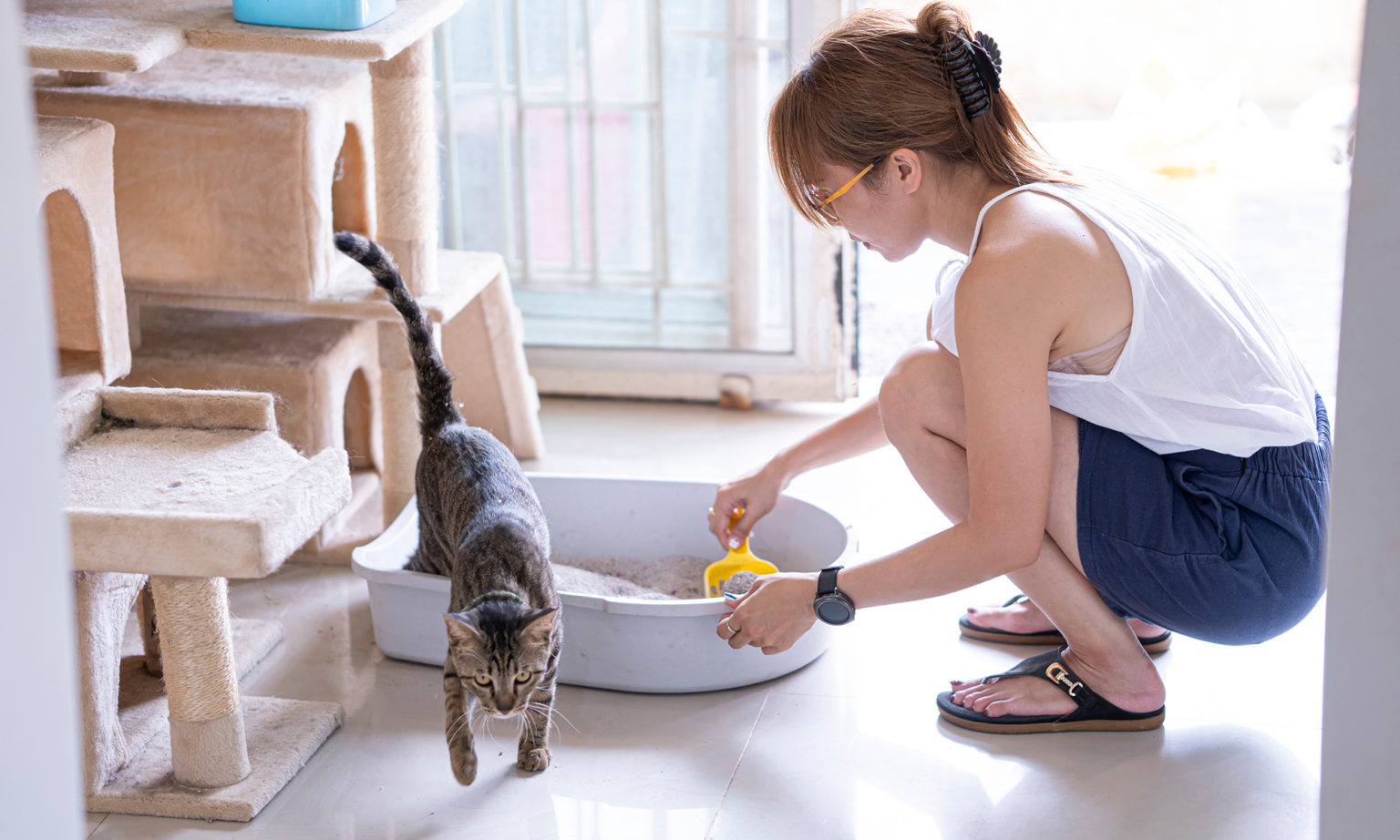

Articles
How To Make Litter Boxes Not Smell
Modified: October 19, 2024
Keep your home smelling fresh with these simple home maintenance tips. Learn how to make litter boxes not smell and maintain a odor-free environment in your house.
(Many of the links in this article redirect to a specific reviewed product. Your purchase of these products through affiliate links helps to generate commission for Storables.com, at no extra cost. Learn more)
Introduction
Dealing with the unpleasant odor of a litter box can be a challenging task for many cat owners. The smell can quickly permeate your home, causing discomfort and embarrassment. However, with some smart strategies and regular maintenance, you can keep your litter boxes smelling fresh and clean.
In this article, we will explore various methods to make litter boxes not smell. From choosing the right litter to implementing proper maintenance practices, we’ll provide you with effective solutions to combat those unwanted odors. Additionally, we’ll delve into natural remedies and other tips for reducing litter box smells. So let’s dive in and discover how to create a more pleasant environment for both you and your furry friend!
Key Takeaways:
- Choose the right litter with odor control, clumping ability, and dust-free formula to minimize litter box smells and ensure your cat’s comfort.
- Implement proper maintenance, ventilation, and natural remedies to control odors and create a fresh, inviting environment for both you and your furry friend.
Read more: How To Make Your Litter Box Not Smell
Choosing the right litter
When it comes to reducing litter box odors, selecting the right litter is crucial. There are various options available on the market, so it’s important to consider factors such as odor control, clumping ability, and your cat’s preferences.
1. Odor control: Look for litters specifically designed to neutralize odors. These often contain ingredients like activated charcoal or baking soda, which help absorb and eliminate smells.
2. Clumping ability: Opt for a litter that forms tight clumps when your cat urinates. Clumping litter makes it easier to scoop out waste, minimizing the chances of any lingering smells.
3. Dust-free formula: Choose a litter that is low in dust, as excessive dust can irritate your cat’s respiratory system and contribute to unpleasant odors. Look for litters labeled as “dust-free” or “low dust.”
4. Unscented or lightly scented: While scented litters may seem enticing, they can be overpowering for both you and your cat. Opt for unscented or lightly scented litter to avoid artificial fragrance buildup.
5. Consider your cat’s preferences: Some cats may have specific litter preferences. If your cat has sensitivities or dislikes a particular type of litter, try a few options to find the one they feel most comfortable using.
Remember to gradually introduce any new litter to your cat by mixing it with their current litter. This will help them adjust more easily to the change and minimize any potential litter box aversion.
By carefully considering these factors and choosing a litter that meets your cat’s needs, you can significantly reduce the unpleasant smells associated with the litter box.
Proper litter box maintenance
Regular maintenance is essential to keep your litter box odor-free. Following a few simple steps can make a significant difference in minimizing smells and creating a clean, inviting space for your cat. Here’s a breakdown of proper litter box maintenance:
1. Scoop the litter box daily: Make it a habit to scoop your cat’s litter box at least once a day. Remove any clumps or waste, ensuring the box stays clean and fresh. This step not only helps control odors but also encourages your cat to continue using the litter box.
2. Replace the litter regularly: Over time, even with regular scooping, the litter will accumulate odor and lose its effectiveness. Aim to completely replace the litter every 2-3 weeks, or more frequently if you have multiple cats or notice a significant odor buildup.
3. Clean the litter box: When you replace the litter, take the opportunity to clean the litter box thoroughly. Use a mild detergent and warm water to scrub the box, ensuring you remove any lingering odor-causing bacteria. Rinse it well and let it dry before adding fresh litter.
4. Use liners or litter box covers: Consider using liners or covers for your litter boxes. Liners can make cleaning easier by preventing litter from sticking to the bottom, while covers can contain odors and provide your cat with additional privacy.
5. Provide multiple litter boxes: If you have multiple cats, it’s essential to have enough litter boxes available. The general rule is to have one litter box per cat plus an extra one. This prevents overcrowding and reduces the chances of litter box avoidance or territorial issues.
6. Keep the litter box in a well-ventilated area: Proper ventilation can help dissipate odors and maintain fresh air in the surrounding space. Choose a well-ventilated area for your litter box, preferably away from high traffic areas or where strong odors may linger.
By following these maintenance practices, you can ensure that your cat’s litter box remains clean, odor-free, and inviting for both your feline companion and your home environment.
Ventilation and air freshening
While proper litter box maintenance is crucial for controlling odors, ensuring proper ventilation and utilizing air freshening methods can further enhance the freshness of your home. Here are some strategies to consider:
1. Open windows and use fans: Ventilation is key to removing any stale air and replacing it with fresh air. Open windows in the room where the litter box is located to promote air circulation. You can also use fans or air purifiers to improve airflow and reduce lingering odors.
2. Use exhaust fans: If your litter box is in a confined space, such as a bathroom, consider using the exhaust fan while your cat uses the litter box. This helps to remove any odors more quickly and efficiently.
3. Natural air fresheners: Instead of relying on synthetic air fresheners that may contain harmful chemicals, opt for natural alternatives. Place bowls of baking soda near the litter box to absorb odors, use activated charcoal bags, or sprinkle some coffee grounds around the area to neutralize smells.
4. Essential oils: Certain essential oils, like lavender or citrus, have natural deodorizing properties. Add a few drops to a spray bottle filled with water and lightly spritz the surrounding area, ensuring your cat is not directly exposed to the spray.
5. Fresh herbs: Place some fresh herbs, such as mint or rosemary, near the litter box to add a pleasant aroma. Not only do they act as natural air fresheners, but they can also provide a touch of greenery to the space.
6. Clean the surrounding area: Regularly clean the area around the litter box to prevent any odor buildup. Vacuum any loose litter or debris and wipe down any surfaces to keep the space fresh and tidy.
Remember, while it’s important to find methods to freshen the air, ensure that any products or scents you use are safe for your pets. Always monitor their reaction and seek veterinary advice if needed.
By incorporating these ventilation and air freshening strategies, you can maintain a more pleasant and odor-free environment around your cat’s litter box.
Regularly scoop out the waste and change the litter every 1-2 weeks. Use a litter deodorizer or baking soda to absorb odors. Place the litter box in a well-ventilated area.
Controlling odors with natural remedies
For cat owners who prefer to avoid synthetic products and chemicals, there are several natural remedies that can help control litter box odors. These remedies are safe, cost-effective, and often readily available. Here are some effective natural solutions:
1. Vinegar: Vinegar is known for its powerful deodorizing properties. Mix equal parts water and vinegar in a spray bottle and use it to clean the litter box and surrounding areas. The acidity of vinegar helps eliminate odor-causing bacteria and leaves a fresh scent behind.
2. Baking soda: Baking soda is a versatile and widely used natural deodorizer. Sprinkle a thin layer of baking soda at the bottom of the litter box before adding fresh litter. You can also mix baking soda into the litter itself to enhance its odor-absorbing capabilities.
3. Activated charcoal: Activated charcoal is highly effective in neutralizing odors. Place a small container with activated charcoal near the litter box to absorb any unpleasant smells. Remember to replace the charcoal regularly for optimal odor control.
4. Natural enzymatic cleaners: Enzymatic cleaners contain live bacteria that break down organic matter, eliminating lingering odors. Use a natural enzymatic cleaner specifically designed for pet messes to thoroughly clean the litter box and remove any odor-causing residue.
5. DIY air freshener: Create your own natural air freshener by combining water, a few drops of essential oils (such as lemon or eucalyptus), and a splash of rubbing alcohol in a spray bottle. Lightly mist the area around the litter box to freshen the air.
6. Fresh air: Simply opening windows and allowing fresh air to circulate can do wonders in reducing odors. Fresh air helps eliminate stagnant smells and promotes a more pleasant environment.
These natural remedies provide effective alternatives to traditional, chemical-laden odor control products. Always remember to test any new products or remedies in a small area before applying them extensively to ensure they are safe for your cat and compatible with your litter box materials.
By utilizing these natural remedies, you can maintain a clean and odor-free litter box area using environmentally friendly solutions.
Read more: How To Make A Litter Box Enclosure
Tips for reducing litter box smells
In addition to choosing the right litter and implementing proper maintenance practices, there are additional tips and tricks that can help further reduce litter box smells. By incorporating these tips into your routine, you can create a more pleasant environment for both you and your cat:
1. Increase litter box frequency: If possible, try scooping the litter box twice a day instead of just once. This helps prevent waste from sitting for too long and reduces the chances of odor buildup.
2. Consider litter box placement: Think strategically when choosing the location for your cat’s litter box. Place it in a well-ventilated area, away from food and water sources, to minimize the spread of odors. Avoid placing the litter box near heating vents or air conditioning units as their airflow can spread odors throughout the house.
3. Invest in quality litter box liners: When using liners, choose high-quality liners that are thick and resistant to tears. This prevents any waste or moisture from seeping through and accumulating at the bottom of the litter box.
4. Use litter box deodorizers: Litter box deodorizers, available in various forms such as powders or sprays, can help neutralize odors and leave a fresh scent. Be sure to use products that are safe for your cat and follow the manufacturer’s directions.
5. Clean surrounding surfaces: Regularly wipe down surfaces surrounding the litter box, such as floors, walls, or cabinets, to remove any trace of odor-causing bacteria or litter dust.
6. Empty the waste bin frequently: If you use a covered waste bin for disposing of scooped litter, make it a habit to empty it regularly. A full waste bin can contribute to unpleasant odors permeating the surrounding area.
7. Consider an automatic litter box: Automatic litter boxes can help keep the litter box cleaner and reduce odor. These self-cleaning systems automatically remove waste, ensuring a fresher environment for both you and your cat.
8. Monitor your cat’s diet: A well-balanced and high-quality diet can contribute to healthier digestion and less smelly waste. Consult your veterinarian for recommendations tailored to your cat’s specific dietary needs.
By incorporating these tips into your litter box routine, you can significantly reduce unwanted odors, creating a more pleasant living environment for you and your beloved feline companion.
Conclusion
Dealing with litter box smells can be a challenging task for any cat owner. However, by implementing the right strategies, you can create a more pleasant environment for both you and your furry friend.
Choosing the right litter, practicing proper litter box maintenance, ensuring proper ventilation, and utilizing natural remedies can all contribute to significantly reducing litter box odors. Regular scooping, litter replacement, and cleaning the litter box are essential for keeping it fresh and clean. Proper ventilation, open windows, and the use of natural air fresheners can help circulate fresh air and eliminate unpleasant smells. Additionally, natural remedies like vinegar, baking soda, and activated charcoal offer effective alternatives to chemical-based odor control products.
By following these tips and maintaining a clean and odor-free litter box area, you can provide a comfortable and inviting space for your cat while also maintaining a fresh home environment.
Remember, every cat is unique, and it may take some trial and error to find the right litter and odor control methods that work best for you and your cat. Monitor your cat’s behavior and reaction to any changes you make to ensure their comfort and well-being.
With patience, consistency, and a proactive approach, you can successfully minimize litter box smells and enjoy a harmonious living space with your beloved feline companion. Here’s to a fresh and pleasant-smelling home!
Frequently Asked Questions about How To Make Litter Boxes Not Smell
Was this page helpful?
At Storables.com, we guarantee accurate and reliable information. Our content, validated by Expert Board Contributors, is crafted following stringent Editorial Policies. We're committed to providing you with well-researched, expert-backed insights for all your informational needs.
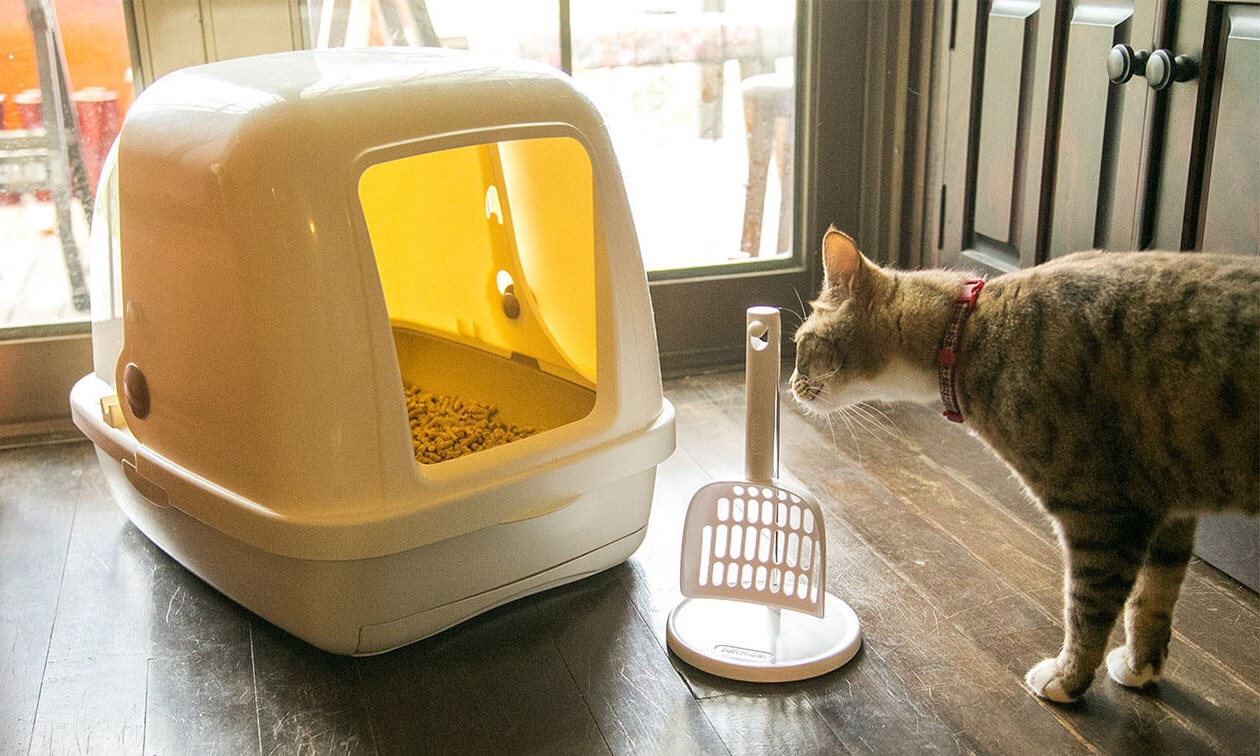
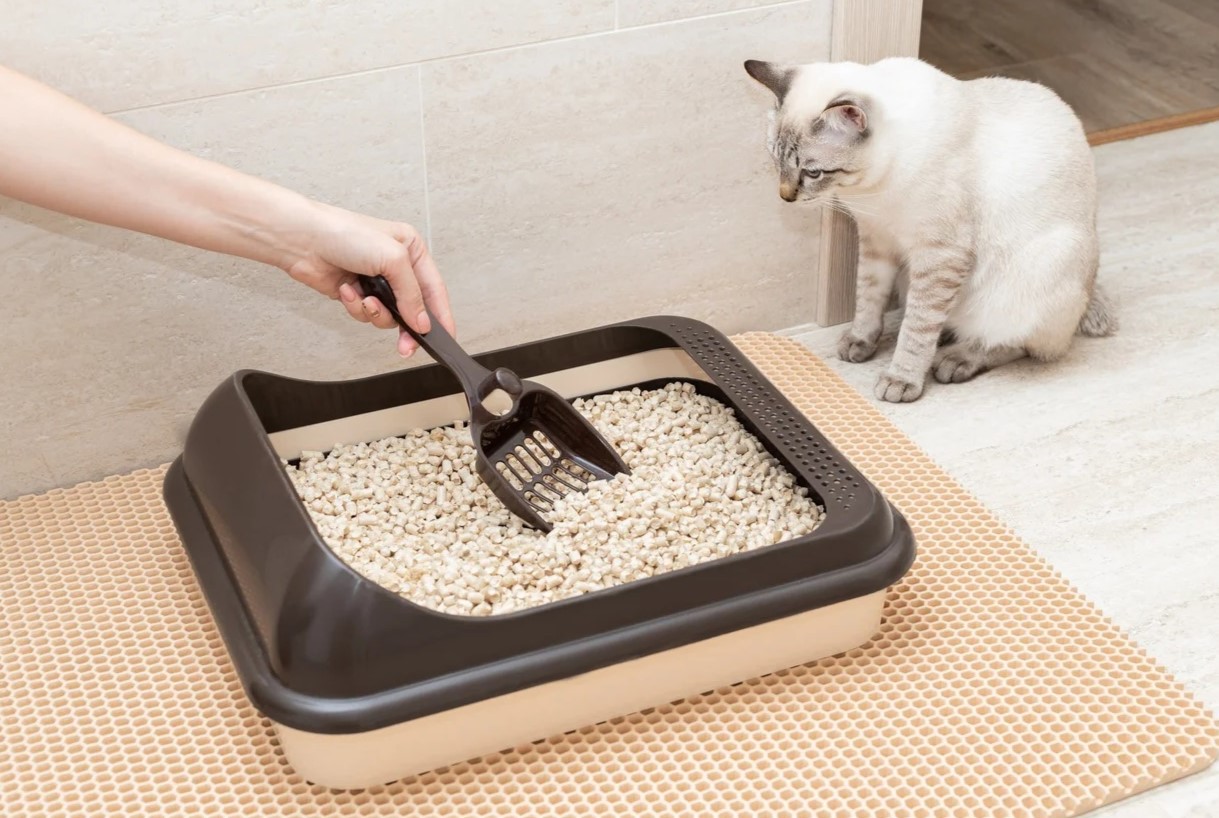
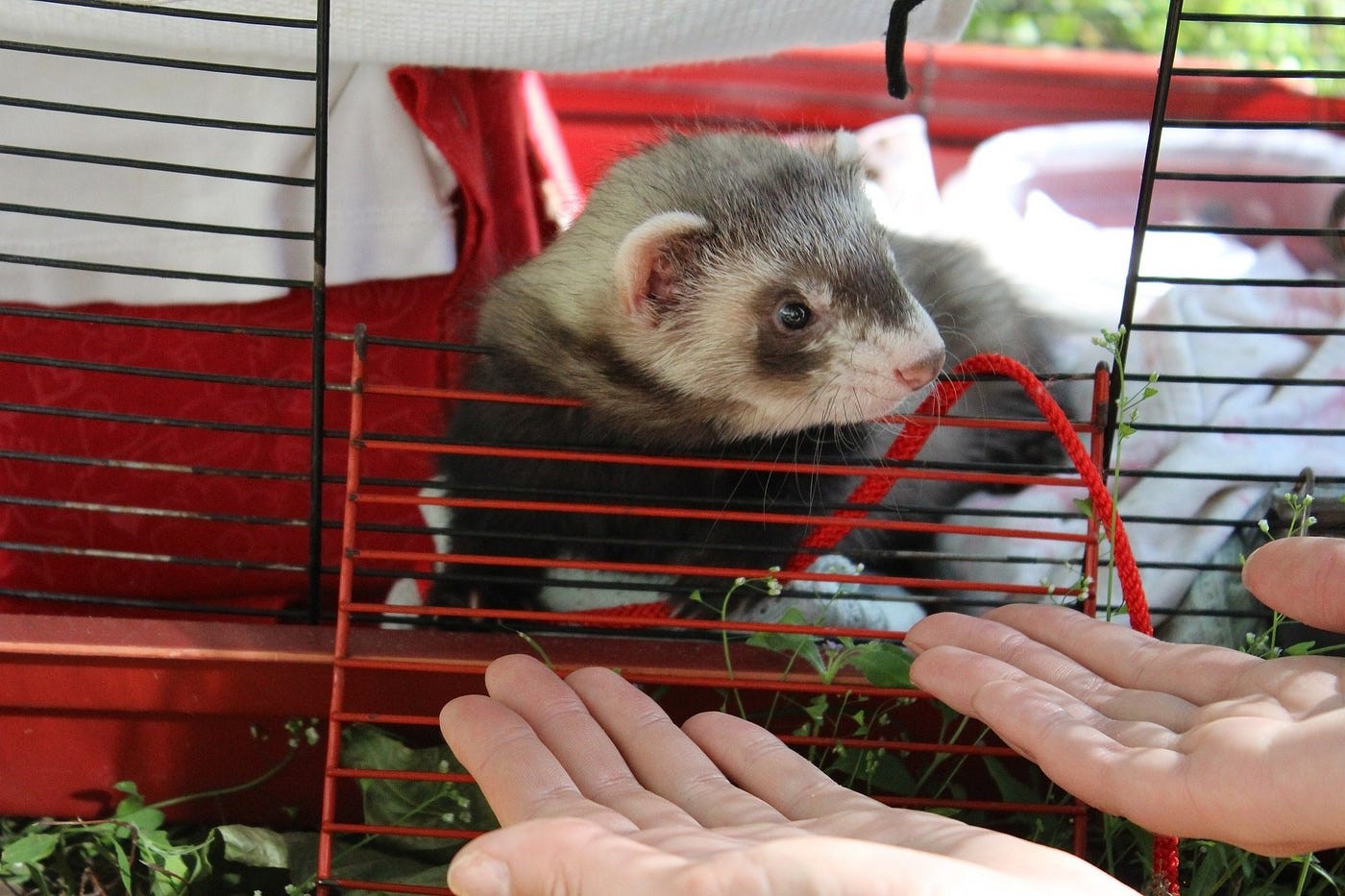

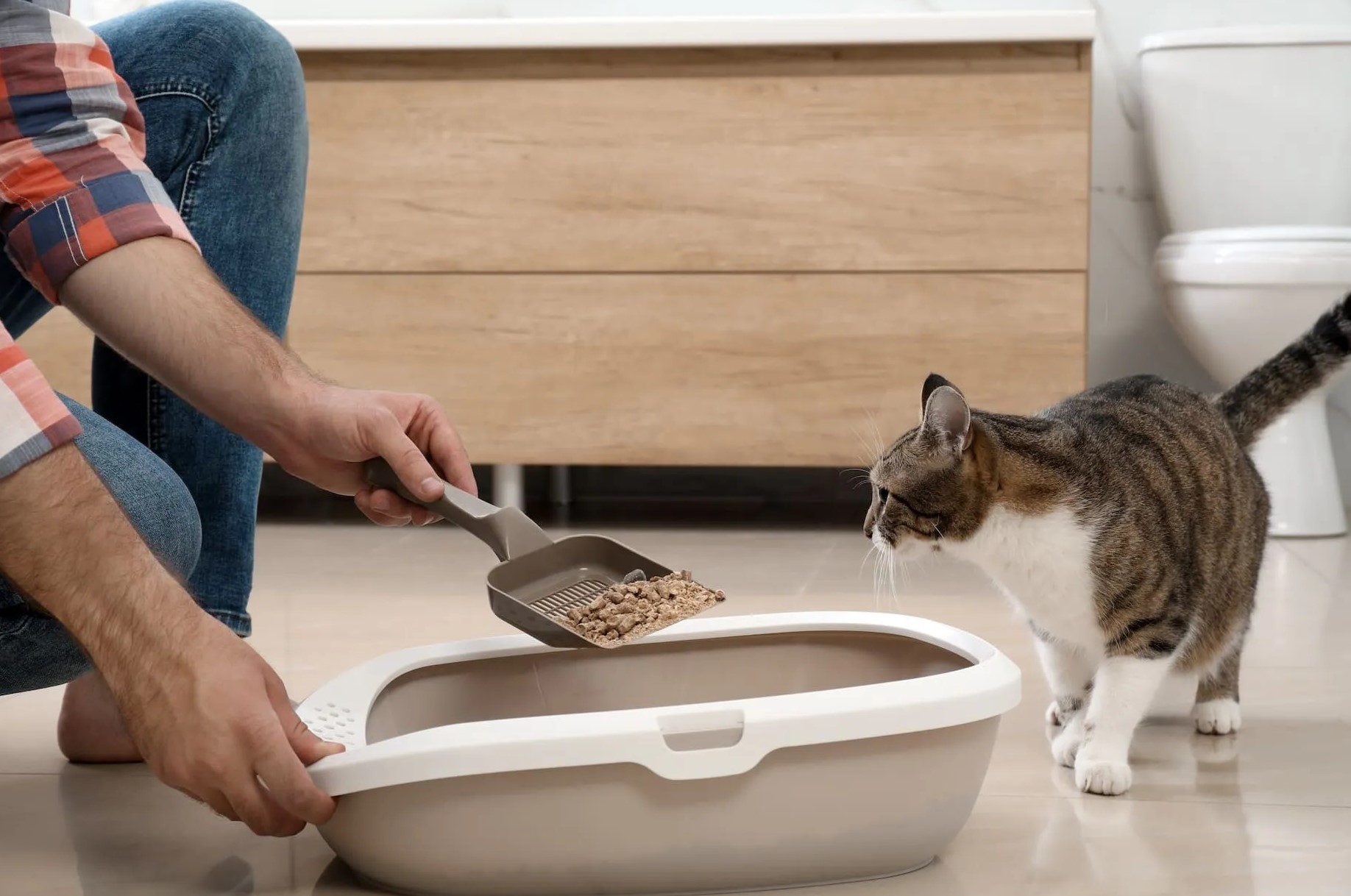
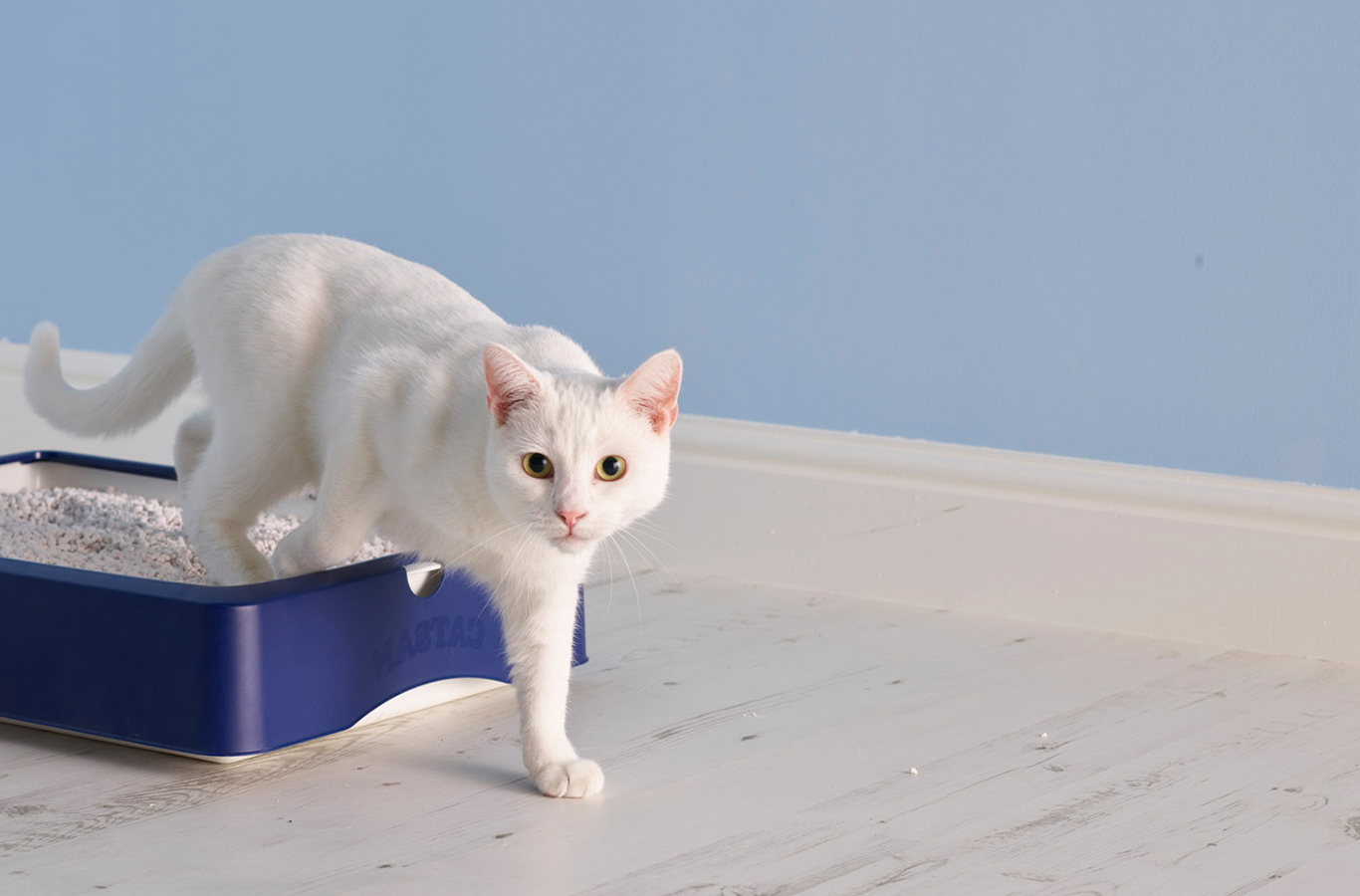
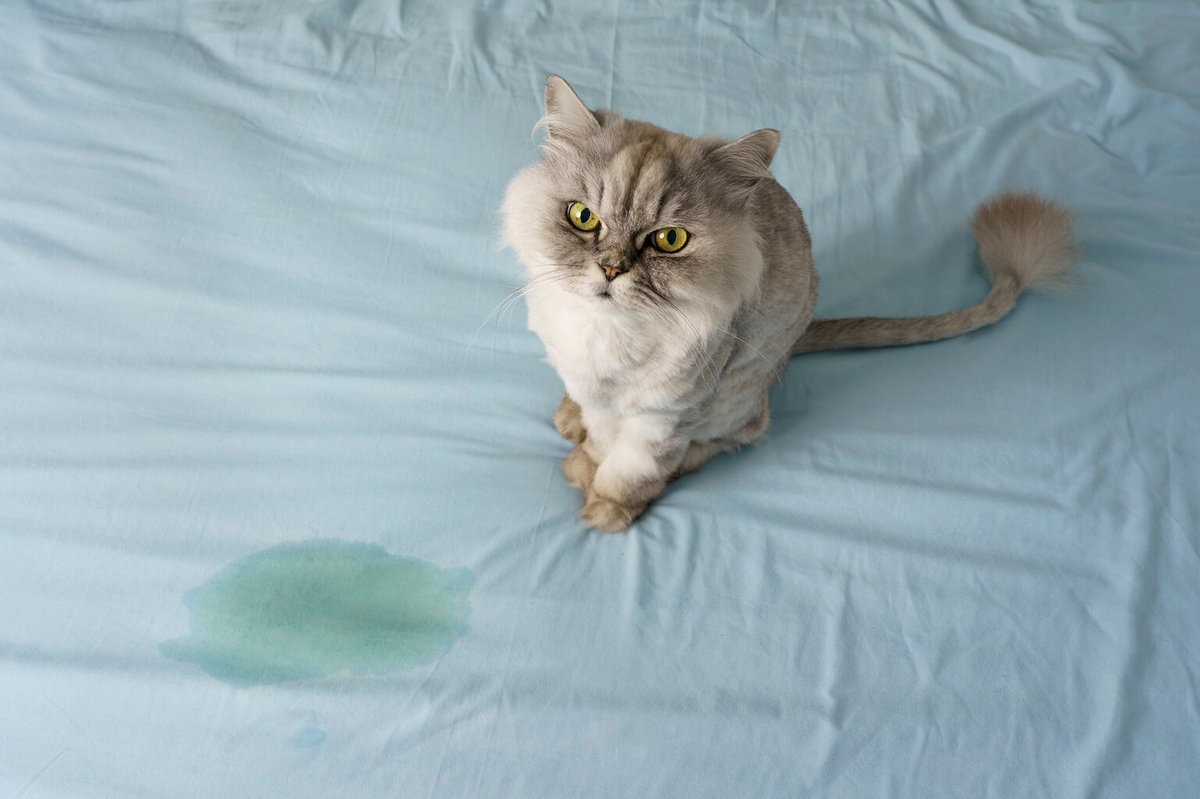
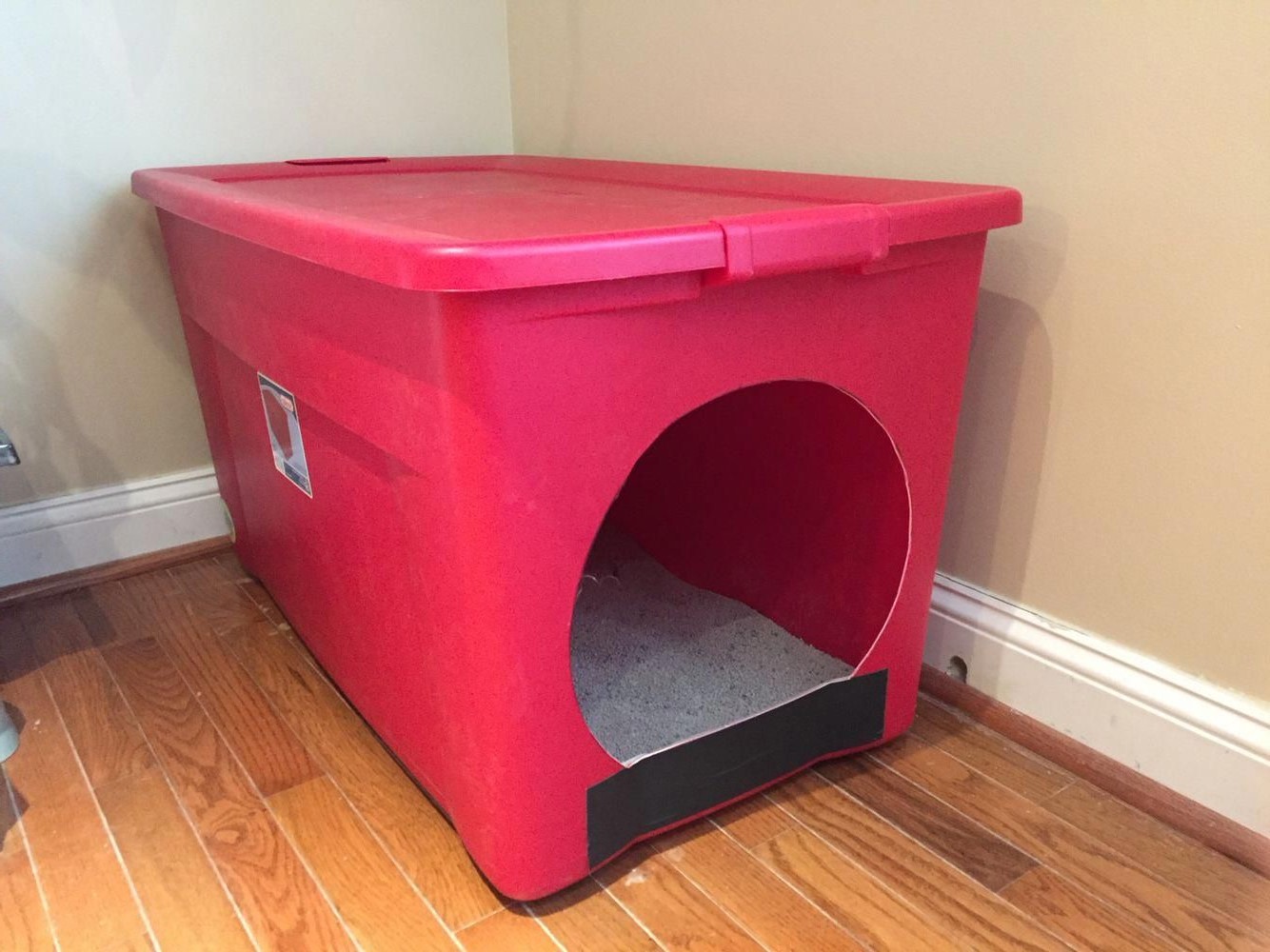
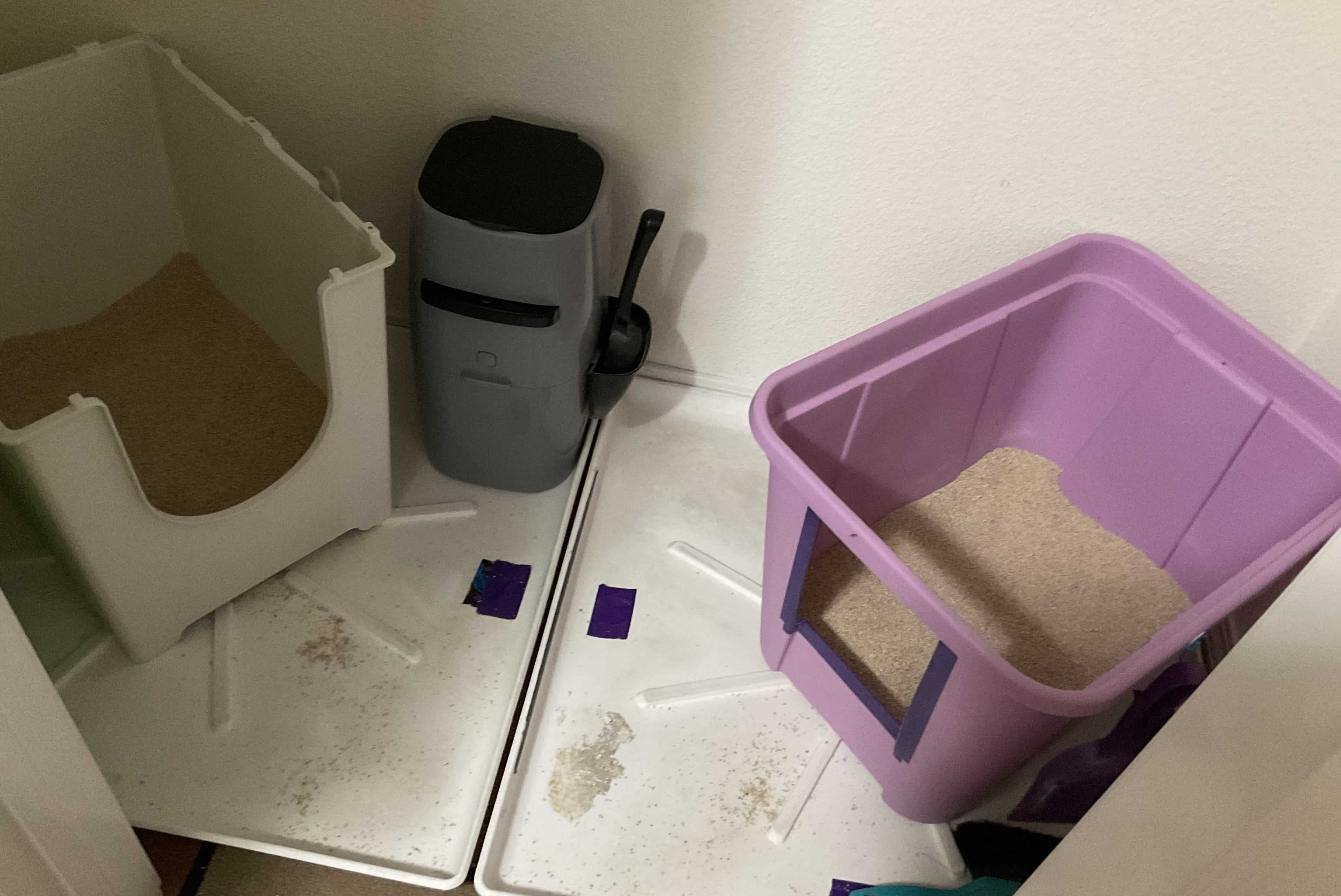
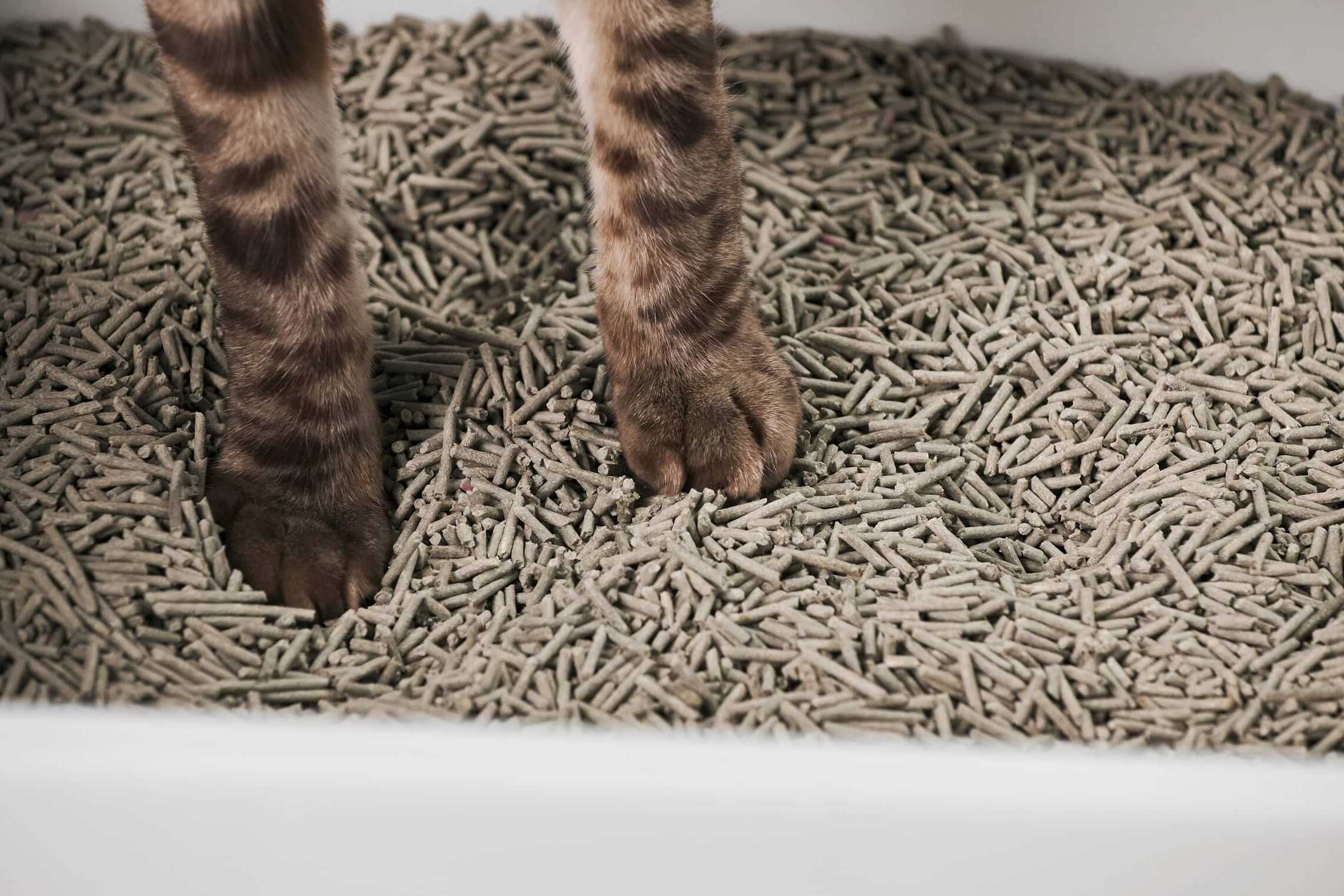
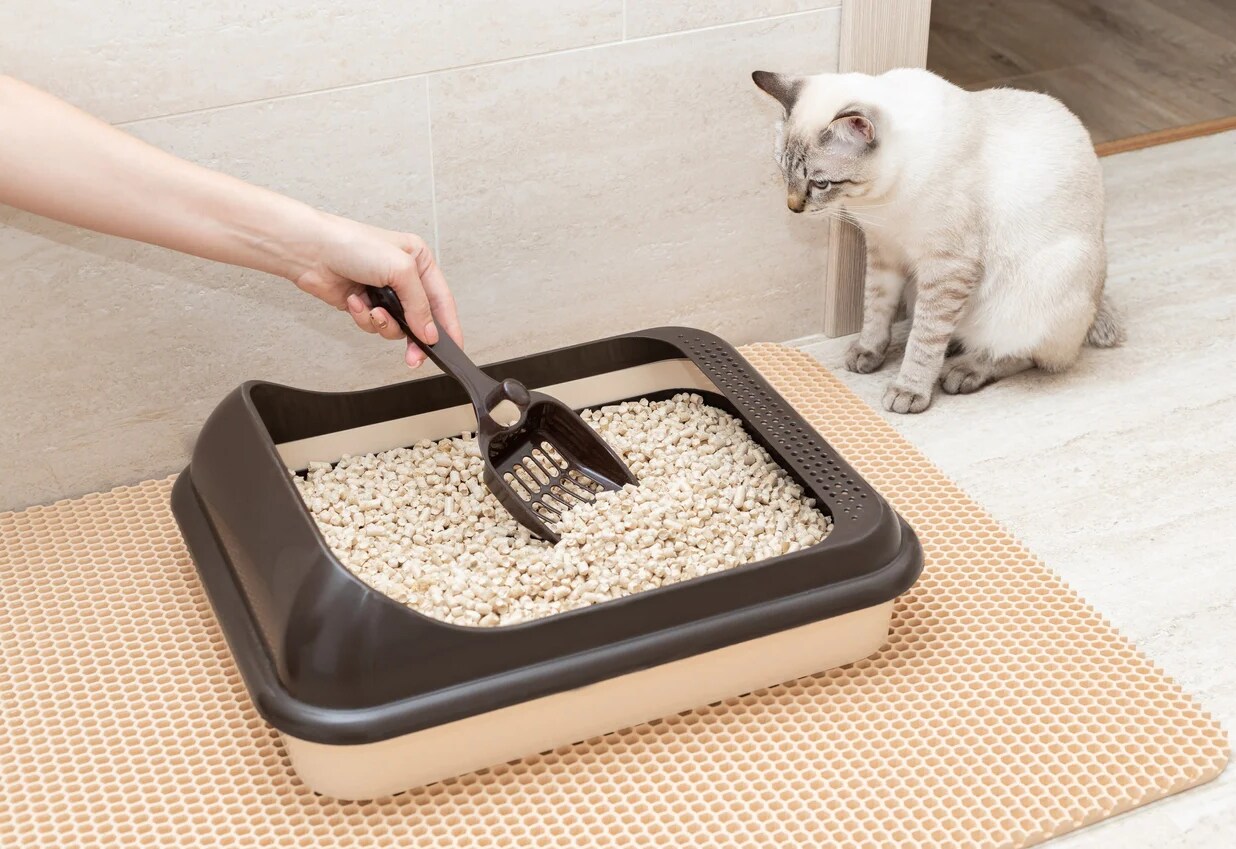
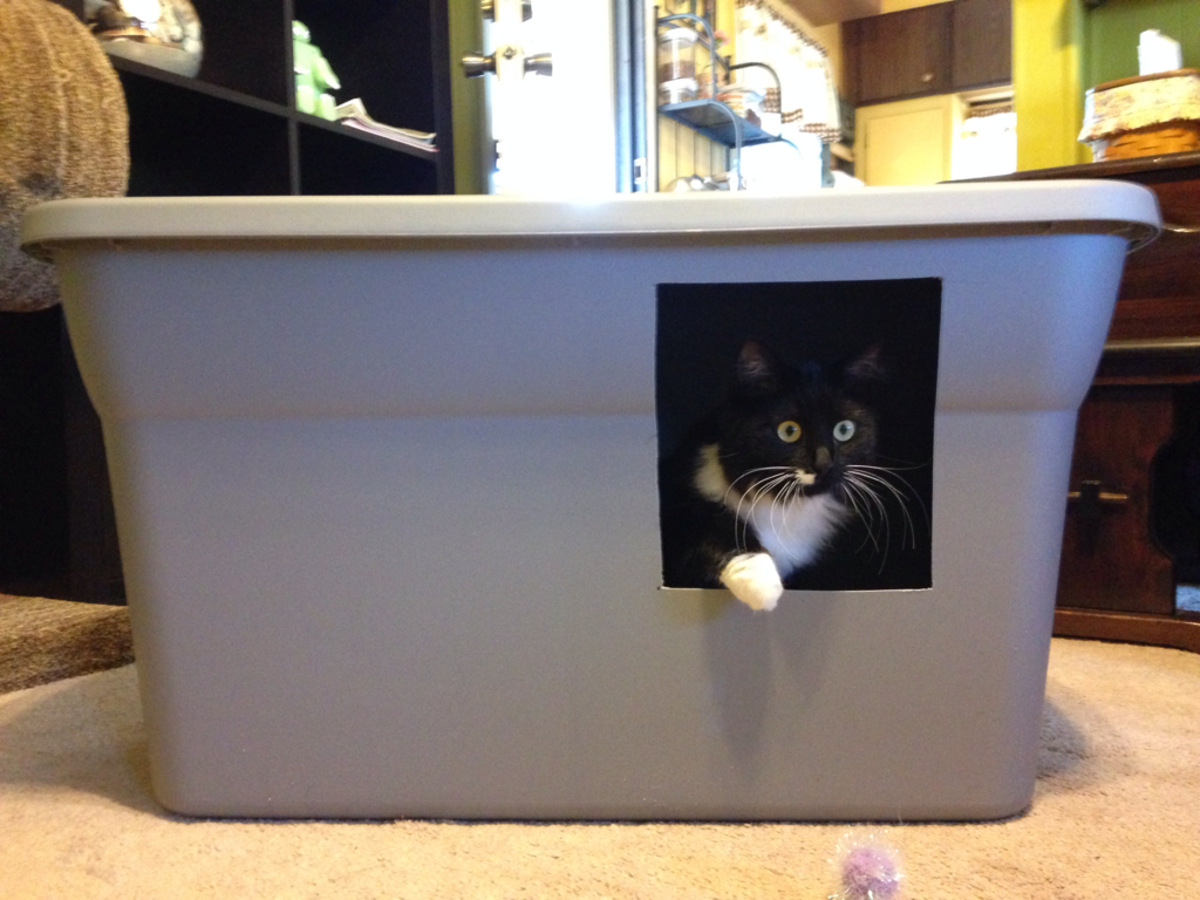
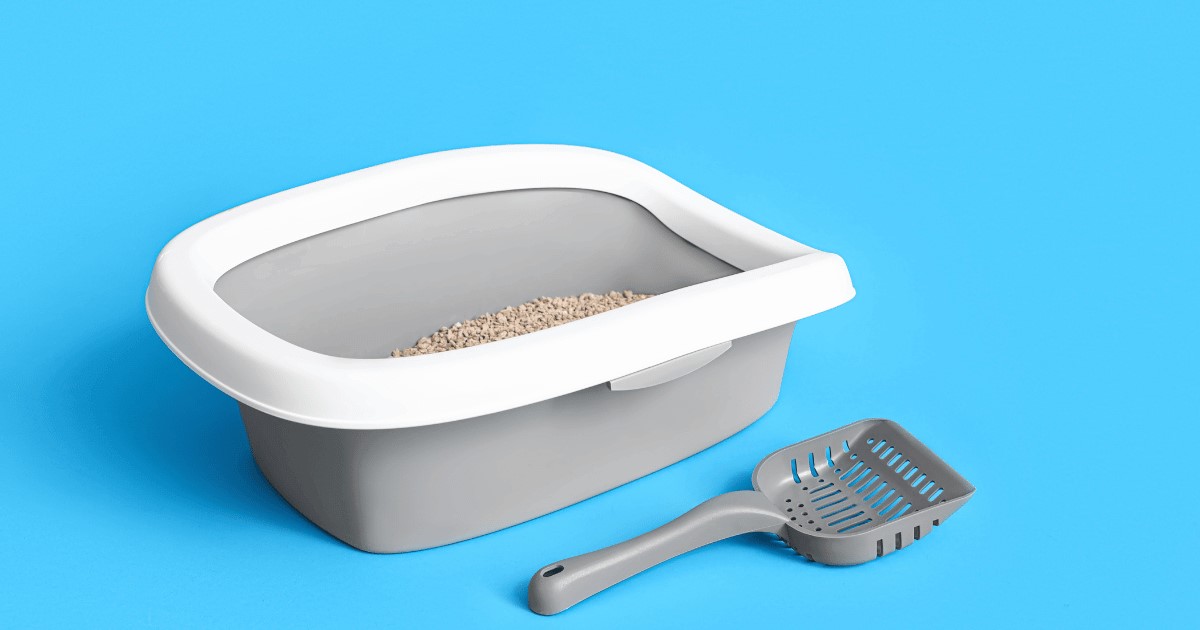
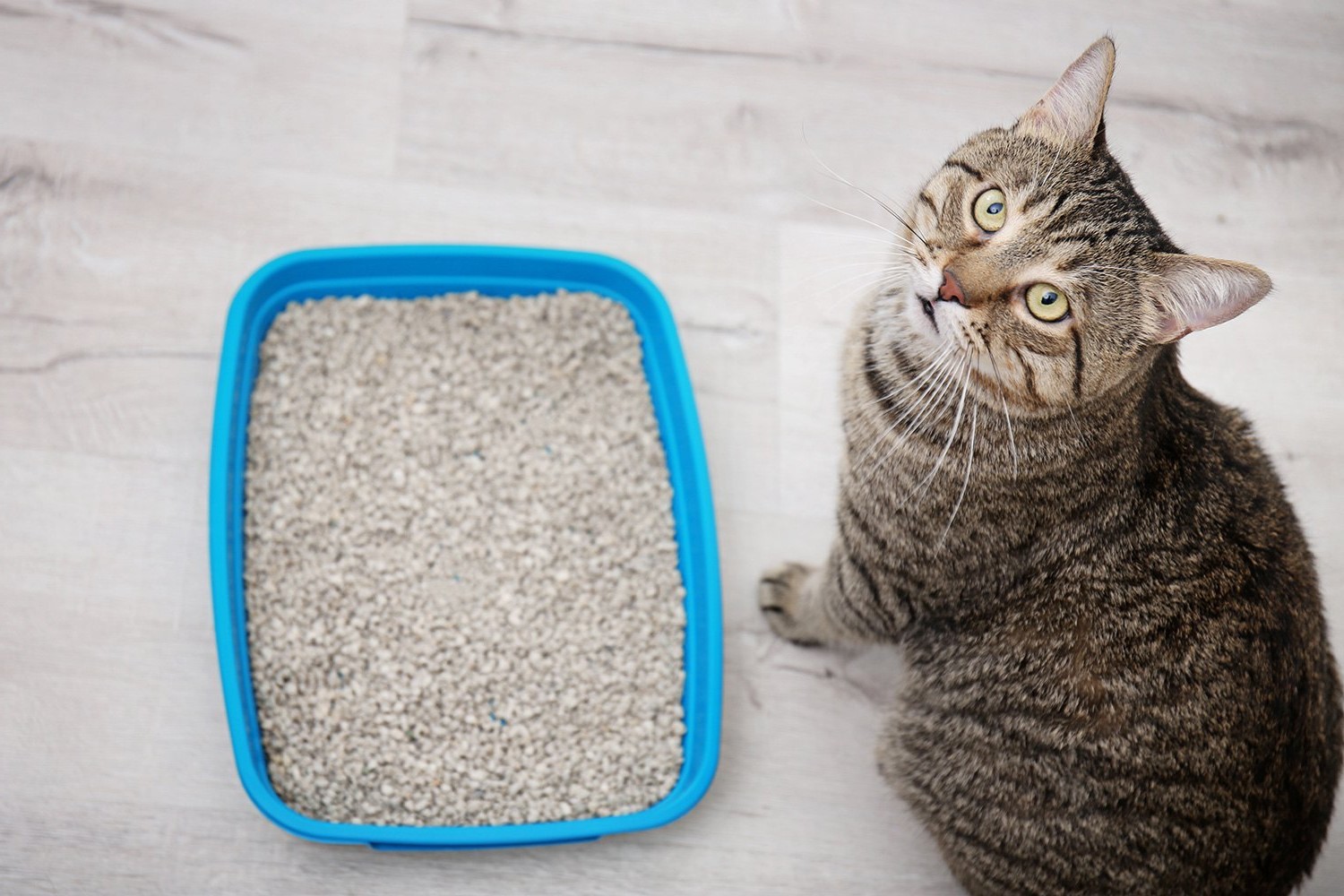

0 thoughts on “How To Make Litter Boxes Not Smell”